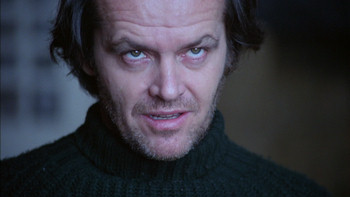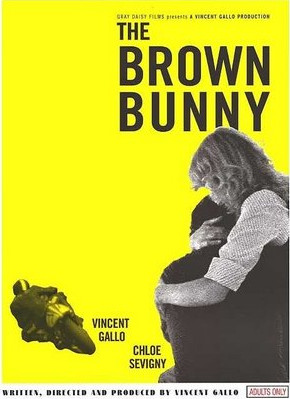Dissociative Disorder: Movies with Multiple Personalities
 Two movies live in Shopgirl. One is a creepy but strangely touching May-December romance between Claire Danes and Steve Martin. The other stars Danes and Jason Schwartzman in a screwball comedy, with an intrusive, superfluous voice-over. The first of these movies is surprisingly good; the second sucks. Plus: Silent Hill, another schizophrenic film.
Two movies live in Shopgirl. One is a creepy but strangely touching May-December romance between Claire Danes and Steve Martin. The other stars Danes and Jason Schwartzman in a screwball comedy, with an intrusive, superfluous voice-over. The first of these movies is surprisingly good; the second sucks. Plus: Silent Hill, another schizophrenic film.

 The turning point in The Shining comes when Jack Torrance encounters a woman in Room 237. Naked, lithe, and beautiful, she gets out of the bathtub and wordlessly approaches Jack. They kiss, but when Jack looks in the mirror, his arms are embracing a decaying old woman, flabby and with patches of her skin missing. It’s not your typical turning point. A heretofore pedestrian movie doesn’t begin to redeem itself, and a previously engaging work doesn’t go off the rails. Instead, things start to get muddled.
The turning point in The Shining comes when Jack Torrance encounters a woman in Room 237. Naked, lithe, and beautiful, she gets out of the bathtub and wordlessly approaches Jack. They kiss, but when Jack looks in the mirror, his arms are embracing a decaying old woman, flabby and with patches of her skin missing. It’s not your typical turning point. A heretofore pedestrian movie doesn’t begin to redeem itself, and a previously engaging work doesn’t go off the rails. Instead, things start to get muddled. You’re in your apartment. Your husband has gone to work. There’s a knock at the door. A genial man says he’s the plumber. You explain that you haven’t called for a plumber. He replies that he’s checking the pipes of all the apartments because of a pressure problem. You let him in; his story seems reasonable, and he’s got the right tools. It’s an act of trust. He says his name is Max.
You’re in your apartment. Your husband has gone to work. There’s a knock at the door. A genial man says he’s the plumber. You explain that you haven’t called for a plumber. He replies that he’s checking the pipes of all the apartments because of a pressure problem. You let him in; his story seems reasonable, and he’s got the right tools. It’s an act of trust. He says his name is Max. A heretical question about Paul Thomas Anderson’s There Will Be Blood: Is Daniel Plainview a good person? The inquiry is an overstatement, because the answer is obvious: Of course not. But contrary to
A heretical question about Paul Thomas Anderson’s There Will Be Blood: Is Daniel Plainview a good person? The inquiry is an overstatement, because the answer is obvious: Of course not. But contrary to  Is it possible that the failure of the second Star Wars trilogy has nothing to do with plot, character, and storytelling and everything to do with physical space?
Is it possible that the failure of the second Star Wars trilogy has nothing to do with plot, character, and storytelling and everything to do with physical space? The Brown Bunny
The Brown Bunny  It’s become apparent with The Dark Knight that dissent
It’s become apparent with The Dark Knight that dissent 